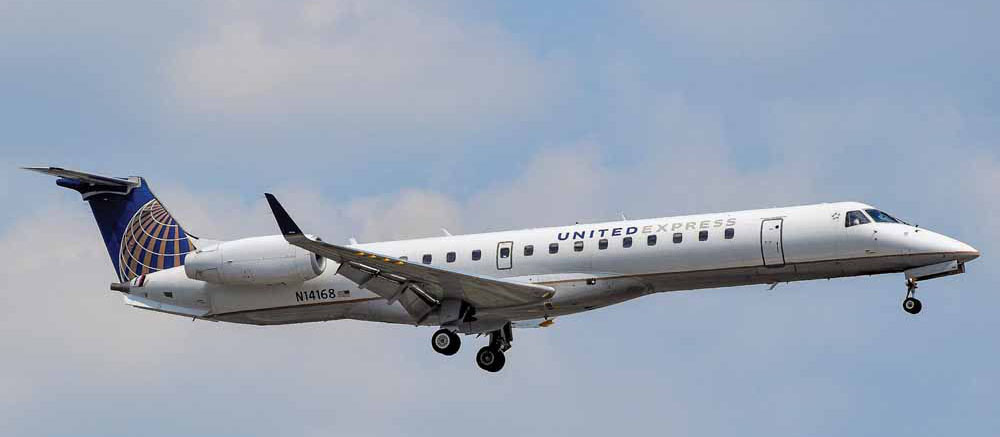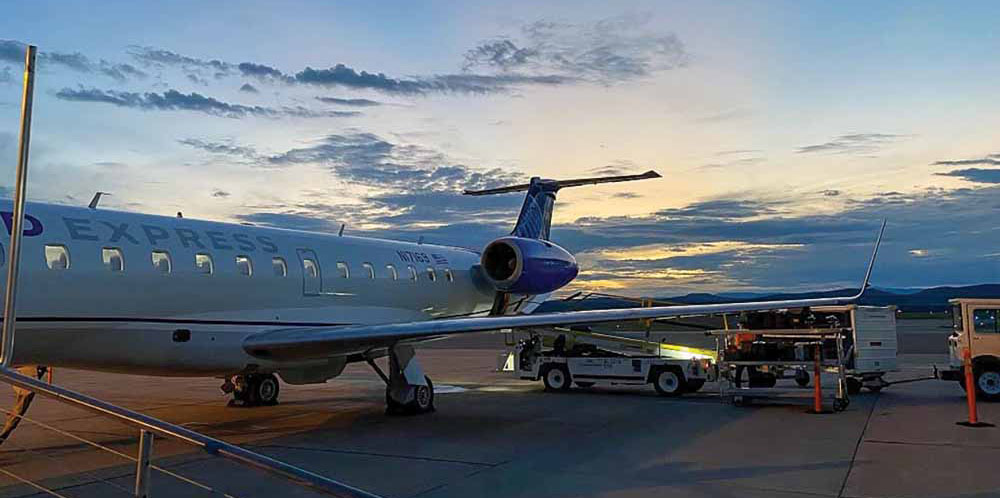CommuteAir

A CommuteAir ERJ 145XR on approach to Newark Liberty International Airport. Photo: Wikimedia Commons
At A Glance
Pilots joined ALPA: 2008
Number of pilots/flightcrew members: 435
Pilot bases: Houston, Tex.; and Washington, D.C.
Hubs/key markets: George Bush Intercontinental Airport and Washington Dulles International Airport
Headquarters: North Olmsted, Ohio
Operations: CommuteAir operates more than 1,600 weekly flights, providing connections for United Airlines’ global network.
Fleet: 57 ERJ 145s and 1 ERJ 170 (in limited charter operation in 2024)
In November 2024, CommuteAir pilots ratified a two-year contract extension with significant improvements to pay, benefits, and work rules. The letter of agreement (LOA) extending the previous deal came after two years of bargaining.
Key improvements include
- Substantial pay rate increases: An average increase of 37.7 percent for captains and 20.5 percent for first officers, with additional annual increases of up to 2 percent.
- Elimination of retention bonus repayment obligations: Provides financial relief and removes a barrier to pilot retention.
- Enhanced benefits: Improved health-care coverage and reserve rules for better work-life balance.
- $20,000 minimum new-hire bonus: A significant incentive for attracting new-hire pilots.
“This agreement recognizes the value and professionalism of our pilots and indicates a path forward for growth and stability in regional airline contracts,” said Capt. Liam Corcoran, the pilots’ Master Executive Council (MEC) chair.
Under the new LOA, the pilot group’s contract runs through Dec. 31, 2028, and represents a major step forward in recognizing the value the pilots bring to the airline while helping to ensure the continued success of CommuteAir’s operations.


